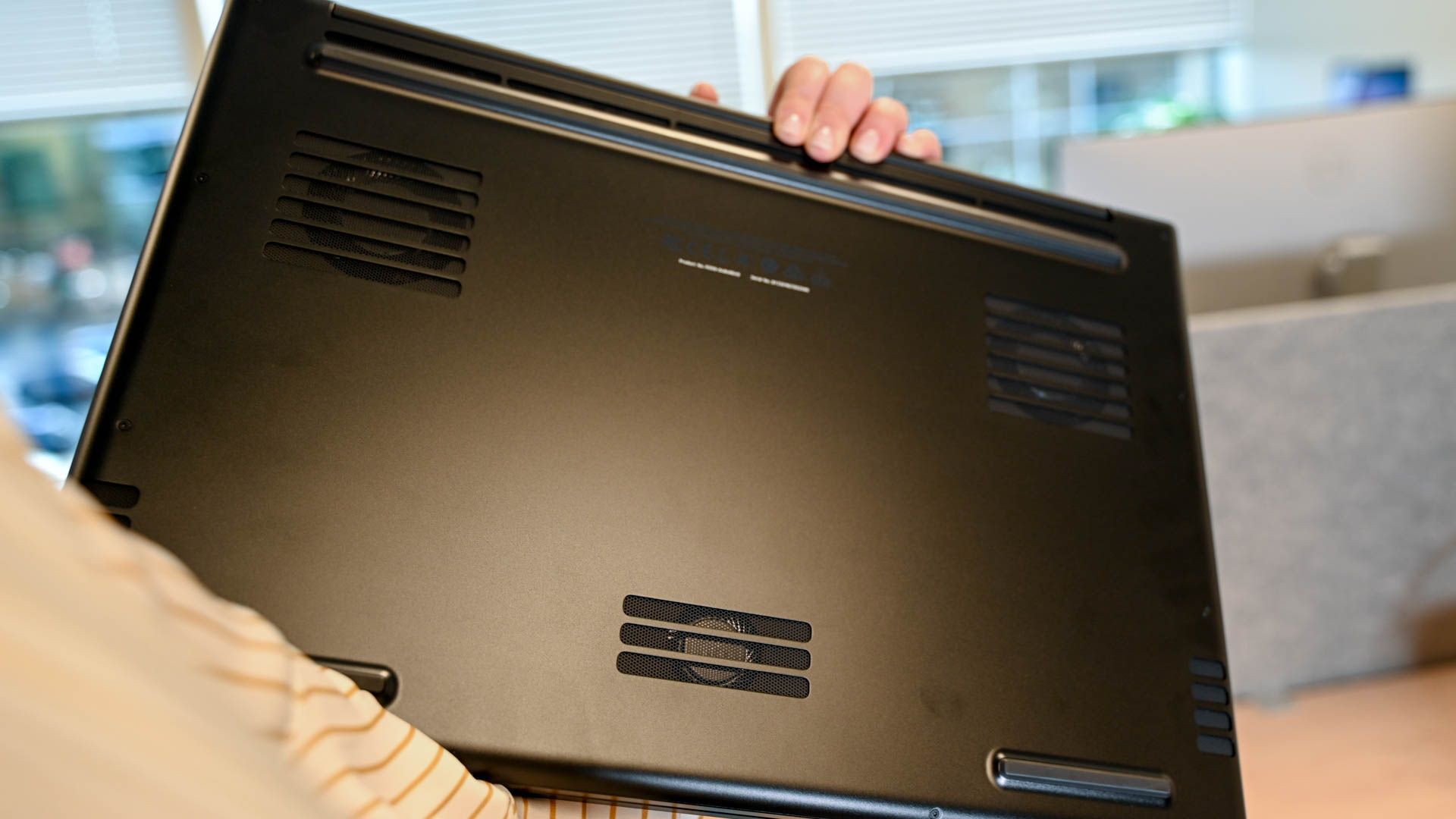Quick Links
Key Takeaways
While laptops naturally generate heat during operation, excessive heat or heat only on place may indicate a problem. Signs of overheating include unexpected shutdowns, loud fan noise, and performance drops.
You're nestled comfortably on your couch, busy crunching the numbers for that big report due tomorrow. Suddenly a wave of heat from your laptop scorches your lap. Naturally, you wonder, "Is this too hot? Is my laptop in danger?"
Laptops Run Hot for a Reason (And It's OK)
You're not wrong to worry when your laptop feels like it's about to burst into flames, but before you panic, understand that laptops run hot for a reason. Those minuscule components packed into such a tight space are working hard. They're pushing pixels, crunching data, or even rendering that impressive explosion in the latest AAA game.
Heat is a natural byproduct of these electronic exertions, and it's something laptop engineers expect. Most modern laptops are designed to handle high operating temperatures and have built-in cooling mechanisms to manage it. Fans, heat sinks, and thermal paste all combine to dissipate heat and keep your system running smoothly. So, a warm laptop? That's perfectly normal.
Some Types of Heat Are Worse Than Others
However, not all laptop heat is created equal. While a bit of warmth during intensive tasks is normal, some forms of heat can spell trouble. If your laptop is hot to the touch even when idle, or if the heat is localized in one particular area, that's not typical.
The CPU and GPU are primary heat generators. These components can withstand high temperatures, but prolonged exposure can lead to throttling or even permanent damage. If your laptop's underside or the keyboard area (which often sits above the CPU and GPU) becomes uncomfortably hot, especially during light tasks, it's time to investigate.
Laptop CPUs and GPUs are designed to run near or at their maximum safe operating temperature. These days, that's often just short of 100 degrees Celcius. If you're used to desktop operating temperatures, that can come as a shock, but remember that the processor is designed to run at that temperature all day, every day, for it's projected lifespan. By letting the processors run at that temperature, the laptop's fans and cooling system don't have to work as hard, reducing power consumption and noise.
Signs That Your Laptop Is Overheating
Now, let's identify the signs that your laptop might be crossing that line from warm to worryingly hot. Unexpected shutdowns are a clear indication---this is your laptop's last-ditch effort to prevent hardware damage caused by excessive heat.
Other signs include consistently loud fan noise, even for simple tasks, or noticeable performance drops when your laptop heats up. If your laptop runs fine when cool but starts to stutter or lag when hot, that's a sure sign of thermal throttling---a safety measure where your laptop slows down its performance to reduce heat generation.
How to Deal With a Hot Laptop
So, your laptop is running hotter than the surface of the sun. What can you do to keep things cool? First, check its physical environment. Make sure the vents aren't blocked, and avoid using your laptop on soft surfaces like beds or cushions that can hinder airflow.
Next, consider a laptop cooling pad. These devices help increase airflow around your laptop, aiding its built-in cooling system.
Regularly cleaning your laptop can also make a significant difference. Dust buildup can block vents and insulate components, causing heat to build up. A can of compressed air is a handy tool for this task.
And if none of these solutions help, consider seeking professional advice. Overheating could indicate a more serious issue, like a failing fan or degraded thermal paste, which needs expert intervention.
A hot laptop is often just a hard-working laptop. But if the heat becomes excessive, it's important to take action. After all, your laptop is a vital tool, and taking care of it ensures it'll continue to take care of you.

